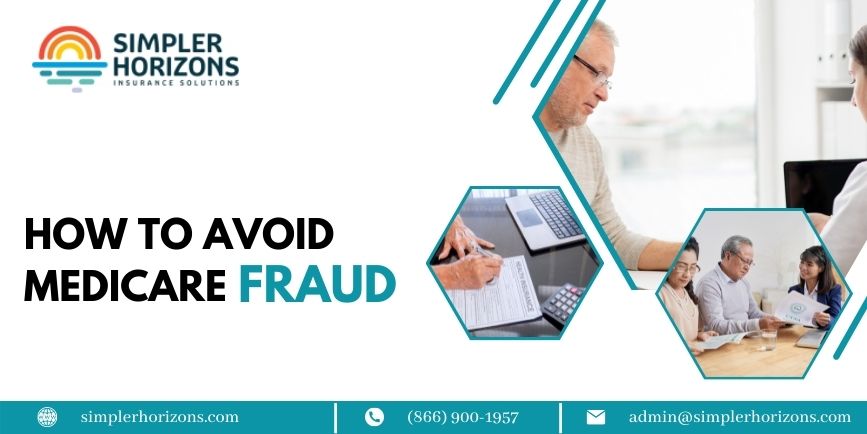
Medicare is associated with quality doctors and healthcare providers to help its beneficiaries. But, unfortunately, in the ordinary course of a medical business, unpleasant things can happen, such as billing errors and, most unwillingly, Medicare fraud and abuse.
Medicare fraud can be defined as a practice to deceive the Medicare system for a supply or service that a beneficiary did not receive.
Fraud and Abuse Laws
The five most essential federal fraud and abuse laws that apply to physicians are:
- False Claims Act (FCA)
- Anti-Kickback Statute (AKS)
- Physician Self Referral Law
- Exclusion Authorities
- Civil monetary penalty Law (CMPL)
The Department of Health and Human Services Office of Inspector General (OIG), Government agencies, including the Department of Justice and the Center for Medicare and Medicaid Services (CMS), are responsible for enforcing these laws.
It is essential to understand that these laws need to be followed because breaking them can lead to criminal penalties, civil fines, suspension from federal healthcare programs, or losing your medical license from your state medical board.
The Federal False Claims Act imposes civil liability on any person who knowingly submits a fraudulent or false claim to the Federal Government. The “knowing” standard includes acting in willful ignorance or falsity of the information related to the claim. An example might be a physician who knowingly submits claims to Medicare for medical services not provided.
Civil penalties for FCA violations can include fines of up to three times the amount of damages received by the government due to false claims and $11,000 for each claim filed. Under federal criminal law, FCA criminal penalties for filing false claims can include fines, imprisonment, or both.
The Anti-Kickback Statute makes it an offense to knowingly offer, pay, solicit, or receive any payment or referral of goods or services that a federal health care program may reimburse. Therefore, when a provider offers the pay, solicits, or receives unlawful recognition, the Provider violates the Anti-Kickback Law.
Physicians are at higher risk of violating anti-kickback schemes. While it is acceptable to reward remuneration to those who refer business to you, it will be considered a criminal offense when you do it in federal health care programs.
Remuneration includes anything of value such as free rent, cash, expensive hotel stays and meals, and excessive compensation for medical directors or counselors. However, if an arrangement meets certain regulatory safe harbors, it may not mean an Anti-kickback Statute. Civil penalties for disrupting the anti-kickback statute can include a fine of up to $50,000 per kickback plus three times the amount of the kickback. Criminal penalties for violating an anti-kickback law can include fines, imprisonment, or both.
The Physician Self-Referral Law (Stark Act) prohibits a physician from referring a patient for certain specified health services to an institution in which the physician (or direct member) has an ownership/investment interest in or with which they have a compensation arrangement unless the exemption applies. Penalties for doctors who violate the Stark Act can include fines and disqualification from participating in all federal healthcare programs.
The criminal health care fraud statute prohibits a willful attempt to execute a scheme in connection with the delivery or payment of benefits, items, or services associated to;
(i) defraud any health care benefit program, or
(ii) obtain (using false or representations, fraudulent pretenses, or promises) any of the property or money or assets owned by, or under the custody or control of, any health care benefit program.
Penalties for violating this statute may include fines, imprisonment, or both.
The Exclusion Statute requires OIG to impose restrictions on healthcare providers and suppliers who have been convicted of;
- Medicare fraud, as well as any other offense related to providing goods or services under Medicare
- Abuse or neglect of patients
- A felony conviction for other fraud, healthcare-related theft, theft, or other financial misconduct
- A felony conviction for the unlawful manufacture, distribution, prescription, or distribution of controlled substances.
The OIG also has the discretion to impose permissive exclusions on several other grounds. Excluded physicians may not bill directly to treat Medicare and Medicaid patients, and their services cannot be billed indirectly by an employer or group practice.
The Civil Monetary Penalties Law imposes CMPs (Civil Monetary Penalties) for various healthcare fraud offenses.
Penalties range from $10,000 to $50,000 per violation. The CMS may also include an assessment of up to three times the amount claimed for each good or service or up to three times the amount of recognition offered, paid, demanded, or received.
To outline various fraud and abuse laws, the CMS provides quality insights in some areas of physician practice, such as physician relationships with payers, vendors, and other providers.
Medicare Billing Errors
Billing errors are often innocent mistakes that exist but are not intended to defraud the Medicare system. For example, a doctor uses the wrong medical code on a claim submitted to Medicare. While the service description sounds correct, the wrong code can change how much you pay out of your pocket. This one-time mistake is not a case of Medicare fraud.
To avoid billing errors, make sure you pay close attention to the payment notices you receive from Medicare or your insurance company. If you suspect a mistake, talk to your doctor or staff member about it immediately. They will explain to you why the payment notice is correct, or they will help you fix the error.
Do’s & Don’ts to Avoid Medicare Frauds
Do’s
- Keep your Medicare number and Social Security number safe.
- Use a calendar to record all your doctor’s appointments and any tests you get.
- Keep learning about Medicare and its recent scams.
- Know what a Medicare plan offers before you join.
Don’ts
- Avoid giving your Medicare card, Medicare number, Social Security card, or Social Security number to anyone other than your doctor or people you know who should have it.
- Do not accept money offers or gifts for free medical care.
- Do not allow anyone other than your doctor or other Medicare providers to review your medical records.
- Avoid contacting your doctor to request a service that you do not need.
5 Tips for Preventing Medicare Fraud
There are various things you can do to help prevent Medicare fraud.
- Keep Your Medicare Number Safe: Treat your Medicare card and number the same way you treat a credit card number. Give only your Medicare or Social Security number to your doctors and other providers.
- Keep Your Medical Information Safe: Be careful if people other than your personal doctors or other medical professionals want to see your medical documents or recommend services.
- Learn More About Medicare Coverage Rules: Beware if a provider tells you that there is a way to cover a service not usually covered by Medicare.
- Don’t Get Services You Don’t Need: If the provider pressures you to have tests or other services that you think are unnecessary, turn down care or ask another doctor for a second opinion.
- Be Skeptical: Be careful if a provider says Medicare will pay for services that are not medically necessary (mud treatments, Swedish massage, and dance classes are examples of services promised in past cases), use your best judgment, and refer to Medicare coverage rules as needed.
One of the excellent measures that you can adopt to save yourself from Medicare Fraud is to choose a plan with the help of a trustworthy insurance agency. Simpler Horizons can help you find a suitable plan depending upon your medical needs.
Schedule a call today to get assistance from our insurance agents specialized in Medicare.
















